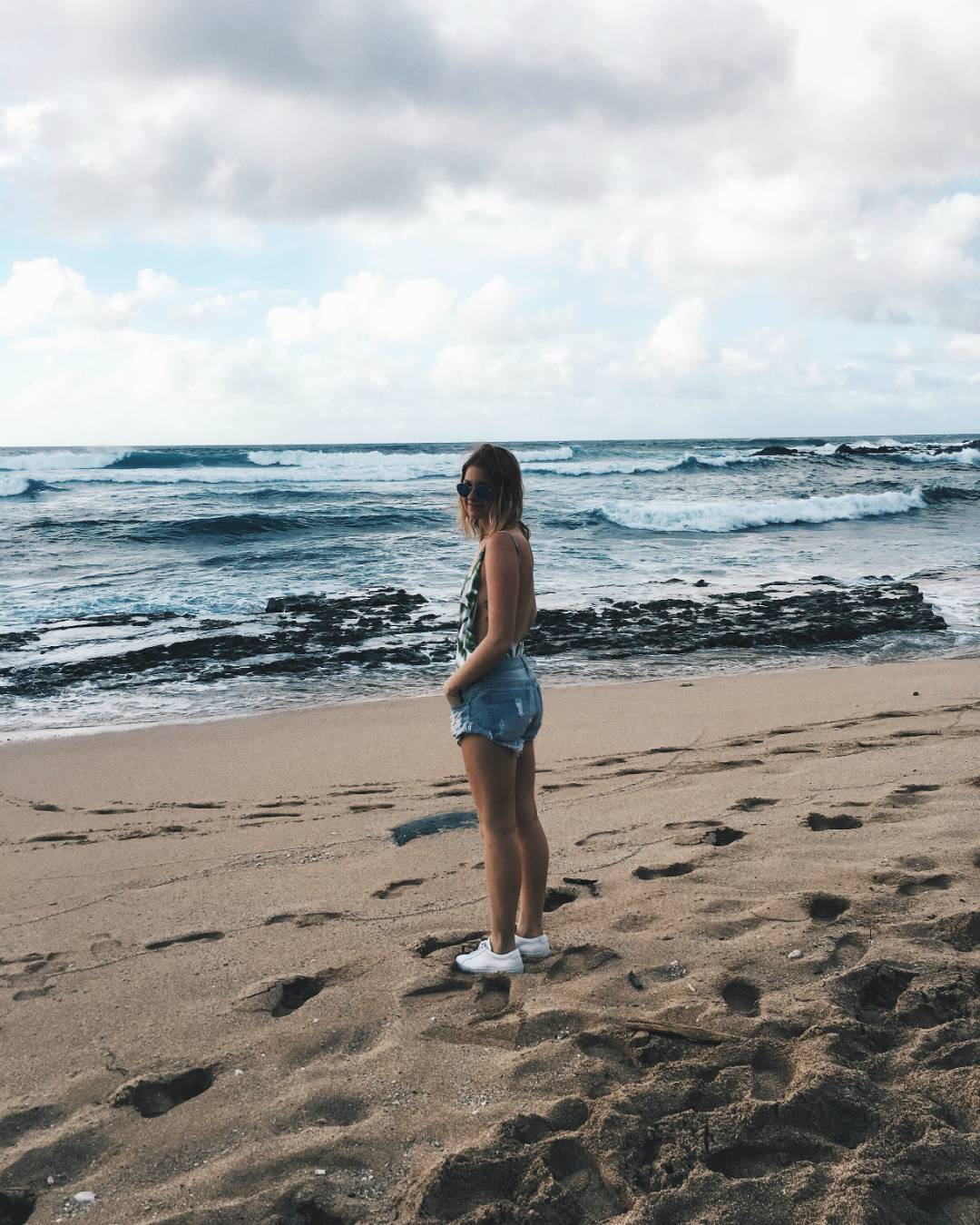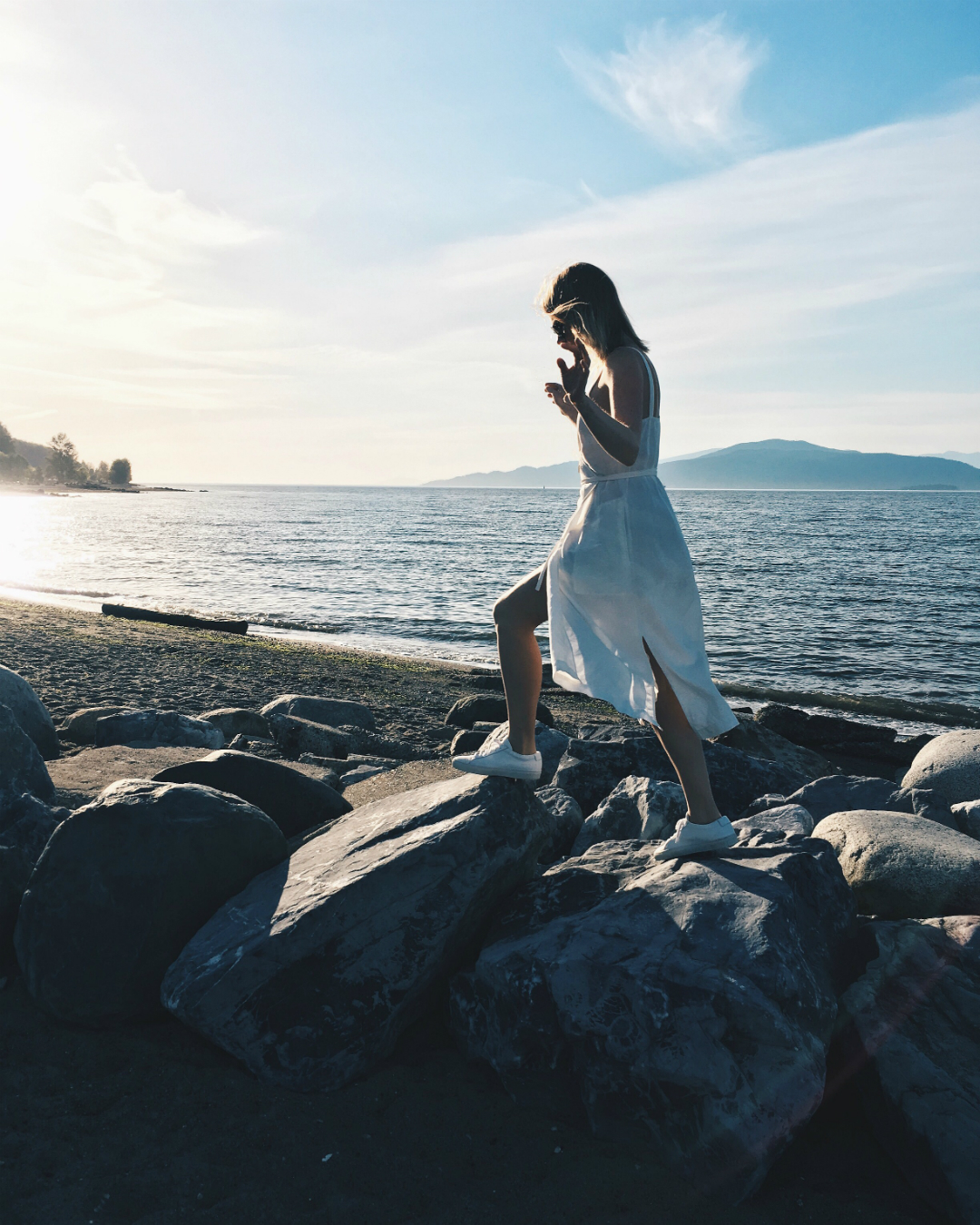Carlle Chatten launched her fashion blog, A Leather-Bound Journal, in October of 2014. Everything was going smoothly—until she began suffering from symptoms of Multiple Sclerosis. She was 27. Learning to deal with the disease, she began focusing more on meditation, yoga, Traditional Chinese Medicine, and holistic nutrition. And thus, just as her life changed drastically, so did her website: she decided to go public with her diagnosis. “Through personal experience, I was learning so much about health, diet, and wellness, I knew I had to share the wealth of information I was gathering,” the now-29-year-old says. “I would always find myself sharing recipes and new research with friends and family.” A Leather-Bound Journal is now a lifestyle and wellness blog, but it is also a diary of sorts; in it, Chatten discloses what it is like to be a young woman with MS, offering a vulnerable and honest look at the disease.
Here, on World MS Day, she discusses her struggles thus far, and why it was so important for her to open up on such a public platform.
What went through your head when you were diagnosed?
For someone who has always lived somewhat carelessly and with the idea that I was invincible, my whole world came crashing down when I learned of being diagnosed with Multiple Sclerosis. The first thing that went through my head was the fear of having zero clue of what my future looked like. I was seriously uneducated when it came to MS and major health issues altogether, besides knowing surface-level information about cancer, diabetes, dementia, and so on. After the fear set in, then came the roller coaster of emotions. I searched on the internet for hours on end, trying to find a cure (which doesn’t exist), a cause (which also doesn’t exist), and, ultimately, how my daily life might be affected. The internet can be one scary place, so it only caused more stress, tears, and anxiety. I felt depressed, helpless, sad, and alone.
Feeling alone was really hard, and although I have the most amazing family, they were just as blind-sighted as I was. Not having anyone to confide in, or whom I could relate to, was awful. Once I got over the depression and realized my life was definitely still going, though, it was obvious I had no other choice but to take control of my health and my healing journey. I did what I thought I had to do. I didn’t want to necessarily give in to all of the drugs because the side effects are really nasty, and I was (and am still) afraid of that. Everything I read led me to alternative treatments, which to me, sounded safer.
What has your experience been like in terms of taking care of yourself and dealing with the disease?
I’m not going to lie: it’s been very tough emotionally. I have chosen to deal with the disease with alternative treatments, which inevitably brings scrutiny. The best way to describe the journey thus far would be confusing. I can’t help but feel slightly depressed and majorly confused at times, especially considering I’m not following a concrete path that most MS patients follow. Am I doing the right thing? What if something drastic happens to me in three, five, or 10 years?
When there is no cause, no cure, and no perfect path, you really have to trust in yourself first. What do you want? What will make you sleep at night? I’ve put off going on medication because none of the options available to me are 100 per cent concrete in helping my progression. Some don’t even have 60 per cent efficacy. The confusion is what led me to try to seek out alternative therapies that I found had honest stories of success, where women (and men) young and old seem to be coping with the disease while maintaining an incredibly high quality of life.
And here I am today! Two years in, feeling in charge of the healing taking place in my body. It’s no easy road. There are ups and downs and in-betweens. Of course I am not a doctor, nor am I trying to be. But my philosophy about the disease is that MS didn’t just appear overnight, so healing my body and potentially reversing the disease will take a long time. Through major diet change, ditching alcohol, getting more sleep, daily meditation and affirmations, as well as exercise, I feel I’m in charge. Is there doubt? Yes, I’d be lying if I said otherwise. However, I’m willing to take a risk.
What made you decide to open up about your struggles on your blog?
As hard as it was to be vulnerable, opening up about my story with MS was the easiest decision I’ve ever had to make. I knew it was the right thing to do, and that was confirmed when as soon as I hit the “publish” button and shared it through social media, I felt free. At the beginning of this entire journey, I thought I would keep it a secret, and I did so for about one year. The only people who knew were my parents, extended family, and then eventually my boyfriend. I was pulling away, constantly hiding, and ultimately being dishonest. The secret was eating me up inside. Superficial conversations, lies, cover-ups. This was not who I wanted to be whatsoever. I realized then that I really had to open up, not only to my friends but to anyone who might listen. It was scary at first, but I really didn’t want to hide any longer. It’s a sense of relief for me, a very personal choice that will vary between each individual.
Another reason for opening up about my diagnosis was to show that nobody is perfect. Social media is an important tool in the 21st century, but it’s so often contrived or dishonest. I wasn’t into being fake, nor did I want to pretend like I had zero worries—because we all have struggles. This was my opportunity to break the mould and let people in on my life, MS and all. At the time of my diagnosis, I couldn’t find a blogger that I could relate to. There was this opportunity that felt personal, in which I could use the platforms I had already built to not only tell my MS story, but to also help inspire others in all aspects of living well.
What do you want to teach people about MS?
I believe that disease or not, educating ourselves about what disease prevention looks like is critical, especially for future generations. MS is an autoimmune disease that affects the central nervous system. Although the disease is linked to genetics, immunologic factors, and viral causes, myself and many others believe MS is linked to the countless toxins we are exposed to on a daily basis, starting as soon as development. These find their way into our bodies through our food, our beauty products, our house cleaners, and even our water and air. If we can educate ourselves to make wiser choices when at the grocery store, or learn how to take care of our bodies without harmful products made from GMO sources, we will already be one step ahead. MS affects over 100,000 Canadians; 400,000 Americans; and 2.5 million people worldwide.
What is the biggest lesson you have learned so far?
Perseverance has no boundaries. I’ve learned that fear is not an option, and my decisions will be made based on an educated mind and a personal intuition.
This interview has been edited and condensed.
_________
Like this story? Read more on science and medicine.












